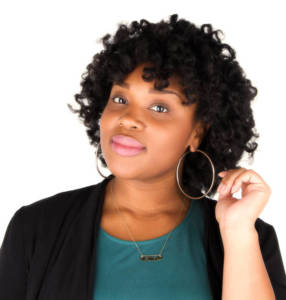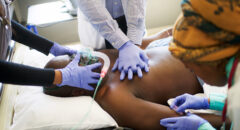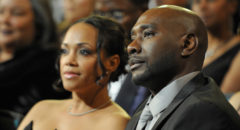
Did you know? Hypertension is the most predominant risk factor for heart failure in Blacks, and aggressive management of hypertension may substantially reduce the incidence and consequences of heart failure in our community.
Hypertension can be caused by high blood pressure, high-stress levels, family history, obesity, and excessive alcohol. All of which can lead to heart disease or stroke. We got a chance to sit down with Denise Huntley-Neal, a 56-year-old mother of four and grandmother of two. She knows about the defeating lifestyle but has since turned her life around to manage her congestive heart failure. Here’s her story:
Give us a little background of how and when you were diagnosed with congestive heart failure.
Well, I was diagnosed with congestive heart failure in 2007. One day I just woke up after working a full day of work, I cooked and cleaned and everything the night before. I felt like I had the flu or something or real bad stomach pains, I didn’t know what was happening so I just laid down for a few minutes. When I woke up, I was in full arrest. I couldn’t catch my breath, I couldn’t breathe. I was just really, really ill.
So, I decided to go to the emergency room. I actually drove myself to the emergency room and when I got there, they were asking me all kinds of questions, like did I think I was pregnant, what was going on with this and that. Because I didn’t even realize at the time my ankles were swollen, my hands, everything was swollen.
After asking me a series of questions and running some tests, finally, they came back and gave me a water releaser called Lasix, intravenously (IV) to remove the water out of my body. So, I was hooked up to an IV while I was in the emergency room to release the water because it was just that much fluid in my body. I just remember going up and down the aisle with this IV rolling it to the bathroom, like every five minutes.
So, they finally admitted me into the hospital and they put me on the cardiatrics floor. I had to be in my 40s and the cardiac doctor peeked his head in, saw me, then looked back out and said “You’re like the youngest person on this floor, what’s going on?”
He told me that my heart was functioning at less than 30 percent and most of my heart was damaged from the fluid, the valves not defibrillating properly, and my pumping chambers being off. After speaking with him, I didn’t realize that I had done all this damage.
RELATED: What Is Congestive Heart Failure?
What were your initial thoughts when they told you your heart was essentially failing?
Well, as a young mother, all I could think about was who was going to care for my kids. What am I going to do? Am I going to die? All kinds of things were going through my mind. Am I going to have to have a heart transplant, surgery? It was just very scary.
Looking back, what were some of the early signs that you think you may have missed?
Of course, being a single parent, not taking care of myself. The stress of work, I had a high-stress job and I know stress is out there and it's inevitable, I know you have to deal with all those stressors at some point but when you’re a single parent, it’s worse because you have to deal with stress continuously. I mean at work, at home, with finances, everything and there is nobody to release it to because you don’t have a significant other that you can talk to.
You can only say so much to your girlfriends without looking like a wiener or crier. So, it was mostly just not taking care of myself, it was all about the kids, it was all about, “okay, I got to clean up”, “I want to set a good example”, “I want to do this, or that”. You know, I never took any time to just allow myself to breathe and relax.
At that time what did most of your lifestyle and diet consist of?
At the time, it was mostly on-the-go food. I was not only working full-time, I was also completing my degree so I was going to school part-time, and trying to make ends meet with my kid’s day-to-day activities.
Most of my meals were eaten either very late at night or before I went to bed. So, I’d eat, go lay right down, and go to bed. In the morning, again, it was grab-n-go. I made sure my children ate properly, I was on top of all of that but I would get whatever was left over or go grab a breakfast sandwich and keep it pushing.
So, my diet was mostly fast food or more-so quick food. It was between carbs, your breads, pasta, stuff that’s easy to whip up. I mean I can’t tell you how many times I had rice and eggs for breakfast.
RELATED: Congestive Heart Failure: Natural Remedies To Save Your Life
What did the doctors recommend as treatment options?
At that time, there was so much damage done to my heart. The option was diet and exercise as usual. Lose weight, of course, that’s always what all the doctors say continuously which, turned into more problems because I did start jogging on the treadmill and started working out, then I got a really bad heel spur to the point where I physically couldn’t do it.
So, it was just a continuous cesspool of 'okay you need to do this, but you can’t do that or you need to do that, but you can’t do this'. It was just very difficult, even up until today.
So, as the congestive heart failure progressed, due to me getting more up in age, inactivity and having trouble changing my diet completely, in 2012 I was told that I needed a pacemaker.
Since having a pacemaker, how has it affected or improved your life thus far?
It has kept my pumping chambers going, it may stop or slow down to pace my heart back into the rhythm but that’s what it’s there for. So, I’m able to be more active now but the problem now is because I am considered obese, I’m still limited in some things I can and can’t do exercise-wise.
However, the only caveat to having congestive heart failure is that you have to rest. Rest actually helps everything, your mind, your body, and puts you back in rhythm.
How are you managing your congestive heart failure today?
I pretty much try to limit all carbs, if I have any at all. I’ll limit it to two times a week and make sure I have plenty of vegetables. I make sure I eat breakfast, lunch and dinner. I’m in water aerobics, I go for walks when the weather permits, and I take a sitting drum class. Just doing whatever I can to try and get the weight down.
You mentioned that you felt a lot of your congestive heart failure was due to the stress of being a working single parent, how are you dealing with that aspect now that all of your children are grown up and out of the house?
Well, because I’m still in a stressful employment situation, I’m now realizing that I’m not going to be able to pull the weight of the stress of the job and my health. So, it’s to the point where I have to make a decision.
Do I want to keep this level of stress to meet financial goals or do I want to find something different that I can get into and still have a quality of life being with my grandchildren, with less stress? So, right now I’m trying to create multiple streams of income to help me transition out of an extremely stressful situation that I am in now.
With my children all off to start their own lives, I started looking at things that I actually had a passion for and like to do effortlessly, like cooking. I always had friends asking me to bake cakes for them for the holidays and they would pay me.
So, through this little inkling, I started a catering and cooking demo business called Mama How You Cook This? where we do in-house cooking to workshop demos and provide outside catering to anyone from individuals and small meetings to destination events.
What would you recommend to someone going through the same diagnosis?
Listen. Listen to your body, listen to your doctors and do everything you can to meet those goals. So many times we always think, oh well it’s not that bad, I’ll be okay, just let me finish this or do that. And you just keep on making it worse and worse. You got to listen to your body and you got to listen to your situation because everybody’s situation is different.
There are people out there in way worse condition than you and there are people out there in way better condition than you. You have to deal with your realities and don’t feel bad about it. I used to feel bad about it and guilty, which caused more stress and for it to get worse. So, you have to do what you have to do in order to meet those goals.

Tia Muhammad, BS, is an award-winning freelance content & media creative, copywriter, blogger, digital designer, and marketing consultant. She owns the boutique content and digital media company, jackieGLDN|studio.









